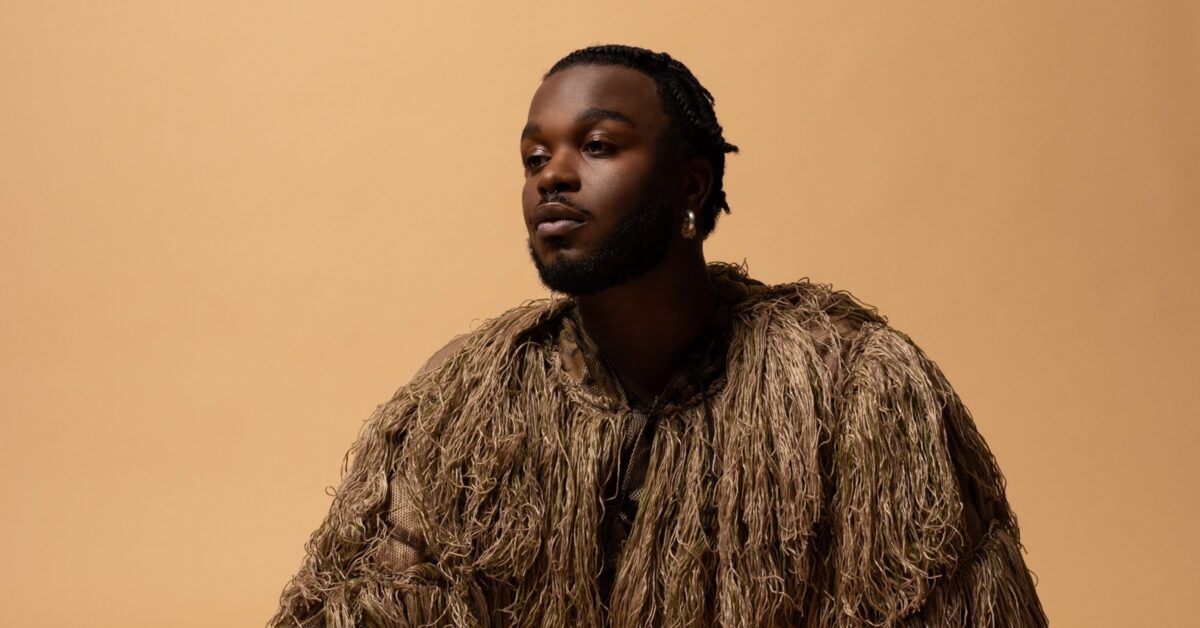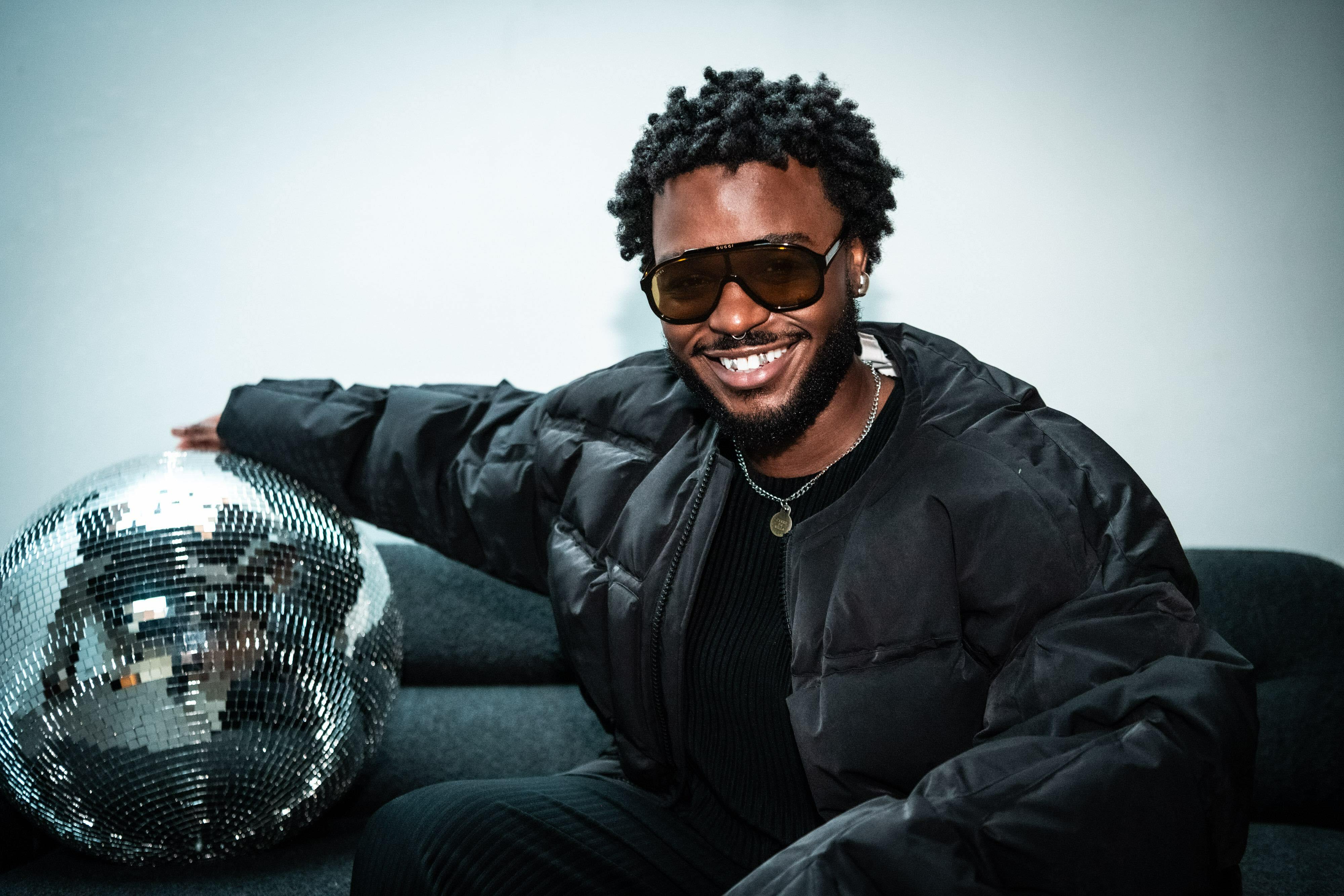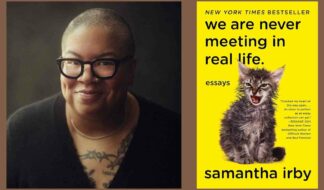Let’s Try This Again: Meet Cakes da Killa, a Rap ‘Foremother’ Who Just Happens to Be Queer
The New Yorker’s new album, ‘Black Sheep,’ would like to remind you that his identity is also 'musician'

It’s a sign of the times that a rapper can be Black, openly queer and free from the genre’s deep-seated hypermasculinity, and not just be named Lil Nas X. Most of the artists currently expanding the limitations of hip-hop won’t end up as household names, but they are worthy of stardom nonetheless. Count Cakes da killa among them. At the forefront of hip-hop and dance music since 2011, Cakes, now 33, was part of a wave of queer hip-hop artists that included Le1f, Mykki Blanco and House of Ladosha, musicians who helped roll out the red carpet for an artist like Lil Nas to run, not just walk.
In 2011, when Cakes was in his 20s, the world was so surprised that an artist like Cakes could even exist that what he was creating was overshadowed by who he is. In his mind, he was a musician first and foremost, but that’s not the way his place in music was spun; many called him a “queer rapper,” tokenizing his sexuality. The title of Cakes’ latest album, “Black Sheep,” refers to his experience in the music industry during a critical moment in hip-hop that shaped where we are currently but also sidelined him in the process — or as press materials put it, “a coronation of his graduation to foremother.” For the album, once again a melding of rap, house, jazz and dance, the New York rapper teamed up with the same producer, Sam Katz, as he did for his last album, 2022’s “Svengali.”
Recently on Zoom, where he appeared in a geometric-patterned caftan, Cakes spoke about the benefits of not being a mainstream rapper, big artists who ride on the trend-making coattails of smaller ones and what he thinks is a major turning point for the visibility of queer performers.
You are an incredibly versatile artist. With this album, where were you in your life that led to its creation?
I kind of have to live life a lot before I start writing. The intention is never to write a certain type of record. So there's never a specific genre intention, but I do have a certain arsenal of sounds that I'm known for, and it just bounces around. For this, it's split — the first half of it is more dance- and electronic-focused, and then that electronic kind of carries off, and then it becomes more rap and boom bap. This is just the music that I make naturally, and I feel like it's a kind of style that's missing in the market. I could have easily just made a drill record or a ballroom record, but for me, I'm also trying to do things that are not so prevalent.
Are you purposely going against the grain? Is this just you wanting to make the music that you want to make regardless of what's happening in mainstream music culture?
It's definitely more the latter. But as a homosexual, I feel like I'm always going to go against the grain, just naturally. It's not like I'm trying to be different. I just am different. And I also feel like when I first started making music, it was at a time where there was still an underground scene, and this was a bit before social media became so prevalent. And I feel like at that time, you couldn't sound like someone else, so you couldn't even work with the same producer. That’s ingrained in me, where it's like every artist has to have their identity.
What helps to keep moving your sound forward?
I think me being authentic is always going to make me be ahead. Because once you get into that kind of system of being a mainstream artist, you're dealing with a lot of pressure to be more palatable to a large amount of people. I don't have that job. I don't have that pressure. So, for me, just not having that pressure alone makes me a little more, I guess, ahead of the curve.
But I also attribute that to me still being active in nightlife. I see a lot of the times people actively trying to make dance albums or [have] these alternative moments, and a lot of those sounds are associated with clubs, venues or actual scenes. And if you don't have any connections in those kinds of scenes, you're appropriating. What keeps me in the mix is that I actively enjoy going out and being in the mix.
Why did you land on “Black Sheep” for the title of this album?
Because when I started writing it, I was in a very weird place and feeling very isolated, but not in a dramatic way. I've always felt very much like an outsider among outsiders, even amongst the peers that I came out with. And so I kind of just took that energy and decided to use it to frame the whole album.
Was that inspiration a result of the beginning of Covid?
No. During the Covid era, I really didn't care. This was after, just trying to figure out slowly getting back into the swing of touring and the swing of things and just figuring out what my place was. Because I do feel like I have a set place. I will always be a footnote, but as someone that's not dead or dying, I'm like, "How do I then reestablish myself in the market?"

You recently retweeted this from JD Samson, a fellow artist who is queer: “Straight people mimicking queer trends for underground credibility continues.” What would you like to add to that conversation, and how does mainstreaming by straight artists affect queer artists?
It's a double-edged sword because in one sense it's those things that are so ingrained in our identities that make us unique. So when someone else who's not a part of the community puts that on like it's drag, which is fine, it becomes an issue when they start getting financial gain from it, where it's just like, "Oh, this is me." And then as an originator of something, you kind of look like you're following a trend versus being the pioneer of something. But the other side of that is, it's kind of a blessing. Because it just shows how we as a society are slowly becoming more accepting of seeing those types of things in mainstream media. Because at one point, I can remember for a drag queen to be on television or on a commercial was salacious. Now everyone's a fucking drag queen.
I just think with most art, if you're being inspired by a scene or by a movement, you just have to do it in a tasteful way and just cite your sources, and that's fine. But the general public really just... let me not call them “dumb.” It's just that most people are kind of like sheep in a sense, where they could hear a country record and not like it, but if a mainstream artist does it, suddenly that adds validity to it.
When I heard “Mind Reader,” a single from the new album, I was picking up some C+C Music Factory vibes. What sonic headspace were you in when you created that song?
Well, the hook, I definitely wanted to write a hook that did feel kind of very C+C and very Soul II Soul, because it’s kind of just my vibe overall. I feel like not a lot of people do that kind of hip-house fusion right, to me. So I wanted to do something like that, and I think it was easy for me to write the lyrics. The harder part was trying to find a singer that could actually carry the vocal the way I wanted them to. I had met Stout a couple months prior at a bar. She has that kind of powerhouse voice, like a Martha Wash, because she's from the church and we don't really hear vocals like that a lot in dance music. I wanted to bring that back.
How did you get to that point of wanting to find a singer like Martha Wash for that song?
Well, if you are going to do a record like that, you have to do it right. I know I couldn't carry the vocal even with all the Auto-Tune and pitching, and I definitely just wanted it to be reminiscent of that time, but I didn't want it to feel outdated, so I couldn't skip on not having the vocal be correct.
Over 10 years into your career, how does the support feel now for LGBTQ+ artists versus when you started?
Well, I always say that I don't think that that is just a hip-hop or rap problem. I think that that was very much a society problem, because even when you look at genres like country music or rock — I mean, rock could be a little bit more free-form, but in the mainstream sense, it is kind of very gendered. So I think it's just across the board. Rap just kind of gets that connotation. But for me as an artist, I don't really focus on the spaces I may or may not be welcome to because, like I said, making music was never my career.
So for me, I just was focused on making my money. Because like I said, when I started, it was like there's no way a drag queen would have a talk show or we'll have “Drag Race” and there's no way a gay artist will ever become a mainstream moment, so just enjoy touring the world and making a little money. I think what started the shift in society accepting these very visible queer people is queer people started supporting queer talent. Because for so long, going to Prides, you would see Martha Wash or Crystal Waters. And that's not to say that there weren't queer people making music, it's just the gay dollar wasn't going into gay acts. Slowly that shift started happening where queer people decided, "Hey, we have money. We want to support people that talk about the things we want to talk about and look like us." That was kind of the main shift.
What’s your earliest memory of wanting to make music?
Well, I never wanted to make music. It kind of started off as a joke. When I was in college, I would just upload videos of me rapping, making fun of people that I went to school with. And from that, somebody hit me up and was like, "Oh, would you be willing to come to the studio and come to New York and record?" Being young and living in Jersey, I always had an excuse to go to New York. So that's kind of how it started, because at that time it was kind of unheard of to be gay. Also, on top of that, being feminine and open and making rap music, it wasn't an option. So it wasn't like a career shift where I was like, I'm going to be this artist. It was mainly like, "Oh, if I do this and become a little underground person, I could get more drink tickets when I go out."










